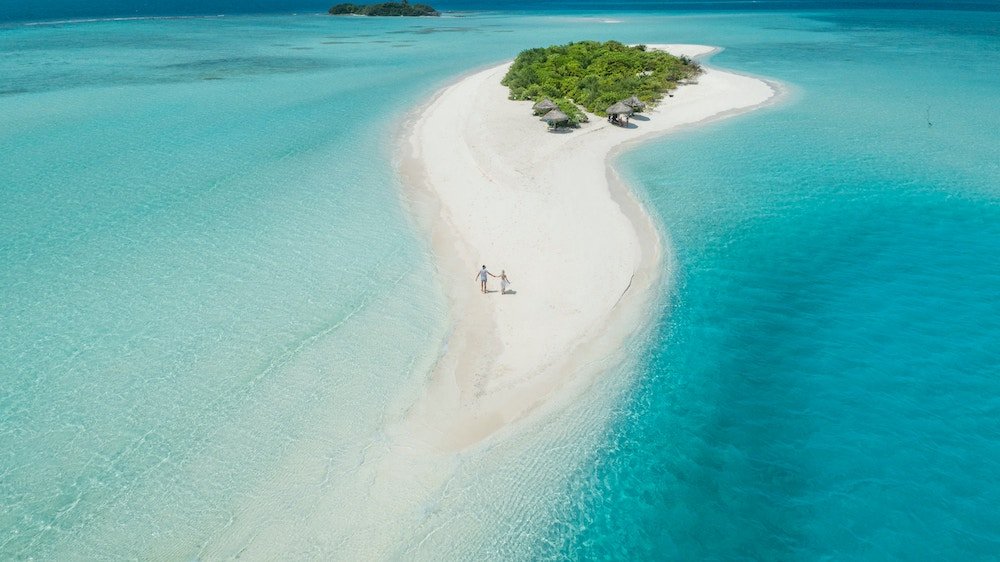
Want to understand fractional ownership and private islands?
Private islands have long captured the imagination of those seeking the epitome of luxury, privacy, and exclusivity.
The allure of having a slice of paradise to call your own, far removed from the hustle and bustle of everyday life, is a dream shared by many.
In recent years, this dream has taken on a new dimension with the rising popularity of fractional ownership—a concept that allows individuals to share ownership of these coveted private islands.
Private islands, often synonymous with opulence, represent a realm of tranquility and natural beauty that transcends the ordinary.
Whether nestled in the crystal-clear waters of the Caribbean or surrounded by the lush greenery of the Pacific, each private island boasts a unique charm and sense of seclusion.
From pristine beaches to untouched landscapes, these islands become a canvas for personalized, dream-like retreats.
While the idea of owning a private island has been a longstanding symbol of affluence, the advent of fractional ownership has democratized this exclusive experience.
Fractional ownership allows multiple individuals to share in the ownership of a private island, making this dream accessible to a broader audience.
This innovative approach has sparked a surge of interest among individuals who desire a taste of island living without the prohibitive costs associated with sole ownership.
In light of the burgeoning interest in fractional ownership and private islands, this guide aims to provide a comprehensive roadmap for prospective buyers and enthusiasts alike.
Whether you are considering a fractional stake in a secluded paradise or are simply intrigued by the concept, this guide will delve into the intricacies of fractional ownership, explore the unique charm of private islands, and equip you with the knowledge needed to navigate this captivating realm.
Understanding Fractional Ownership
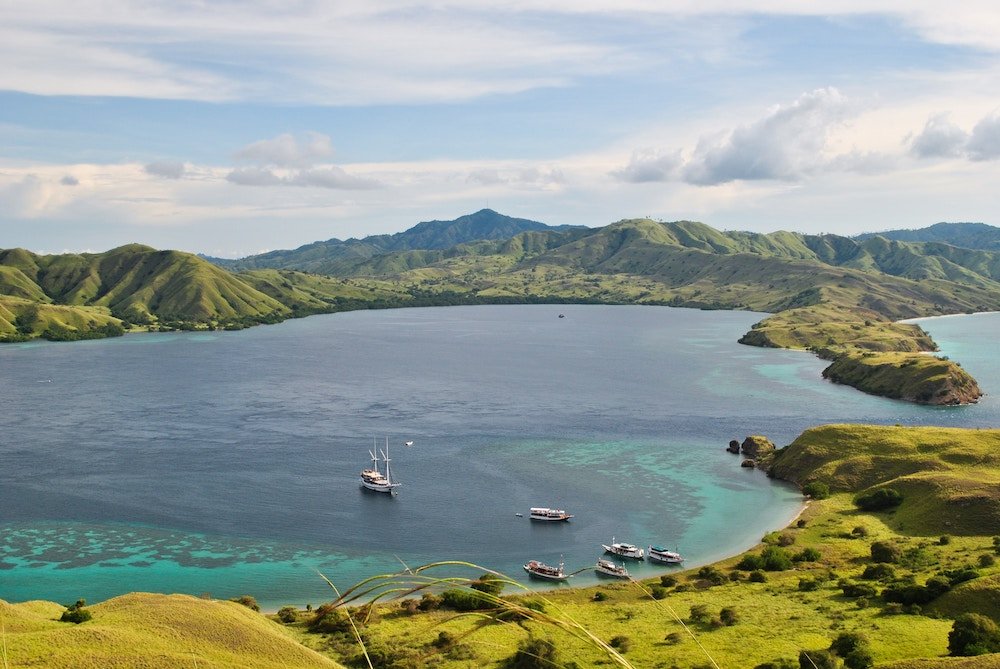
Fractional ownership is a unique and innovative approach to property ownership that allows multiple individuals to share the rights and responsibilities of owning a specific asset.
In the context of private islands, fractional ownership opens the doors to a shared paradise, enabling individuals to collectively own and enjoy the benefits of a secluded retreat.
Benefits of Fractional Ownership
1. Cost-sharing
One of the primary attractions of fractional ownership is the ability to share the financial burden of owning a private island.
The substantial costs associated with purchasing and maintaining such exclusive properties can be daunting for individual buyers.
Fractional ownership mitigates this challenge by dividing the expenses among multiple owners, making the dream of island ownership more financially attainable.
2. Access to Premium Properties
Fractional ownership provides individuals with access to premium properties that might be otherwise out of reach.
By sharing ownership, participants gain a stake in a high-end private island without the full financial commitment.
This not only broadens the scope of available options but also allows for a diversified and enriched ownership experience.
3. Maintenance and Management
Owning a private island entails ongoing maintenance, management, and operational responsibilities.
Fractional ownership models typically include structured management plans, ensuring that the property is well-maintained and efficiently operated.
Shared responsibilities mean that the workload is distributed among the owners, providing a hassle-free and well-maintained island experience for everyone involved.
Common Types of Fractional Ownership Structures
1. Fixed-time Fractional Ownership
In a fixed-time fractional ownership model, each owner is allocated a specific period during which they have exclusive access to the private island.
This approach is ideal for individuals who prefer a predictable schedule for their retreats, allowing for effective planning and utilization of the property.
2. Equity-based Fractional Ownership
Equity-based fractional ownership involves ownership stakes represented as shares or equity in the property.
Owners hold a percentage of the property, and the value of their ownership is tied to the overall value of the asset. This model provides a more direct financial interest in the property’s appreciation.
3. Destination Clubs
Destination clubs operate as exclusive memberships that grant participants access to a portfolio of luxury properties, including private islands.
Members pay an initiation fee and annual dues, gaining the flexibility to experience various destinations within the club’s portfolio.
This model offers a diverse and curated selection of premium properties for members to enjoy.
Understanding the intricacies of these fractional ownership structures is essential for those considering a stake in a private island.
Each model has its advantages and considerations, and choosing the right one depends on individual preferences, usage patterns, and financial goals.
Exploring the Allure of Private Islands

Private islands hold a magnetic allure that goes beyond the conventional concept of luxury real estate.
They represent a realm of exclusivity and tranquility that captures the imagination of those seeking a retreat from the ordinary.
The unique appeal of private islands lies in their ability to offer a truly bespoke and secluded experience—a world away from the hustle and bustle of everyday life.
Factors Influencing Private Island Ownership
1. Privacy and Exclusivity
At the heart of the allure is the unparalleled level of privacy and exclusivity that private islands afford.
These secluded havens provide a sanctuary where owners can escape the prying eyes of the world and indulge in a retreat that is entirely their own.
The limited access, coupled with the vast expanses of unspoiled nature, creates an environment where serenity and solitude become the defining features.
2. Natural Beauty and Surroundings
The breathtaking natural beauty that surrounds private islands is a defining factor in their appeal.
From pristine beaches and crystal-clear waters to lush landscapes and diverse ecosystems, private islands offer an immersion in nature’s splendor.
The sheer variety of surroundings—from tropical paradises to temperate escapes—ensures that there’s a private island to cater to every aesthetic preference.
3. Potential for Customization and Development
Owning a private island isn’t just about enjoying the existing beauty; it’s also an opportunity for customization and development.
The vast canvas of a private island allows owners to tailor their retreat to their unique vision.
Whether it’s building a dream residence, incorporating eco-friendly features, or creating recreational facilities, the potential for customization adds a layer of personalization that is unparalleled in traditional real estate.
Navigating the Fractional Ownership Process
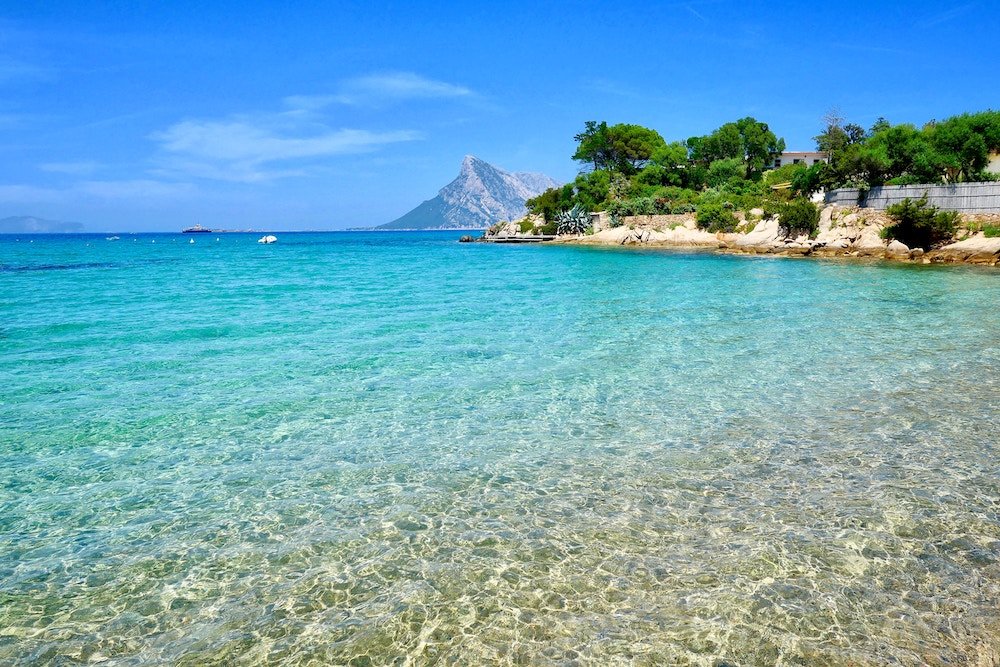
Embarking on the journey of fractional ownership necessitates thorough research and due diligence.
This involves a comprehensive examination of various factors to ensure a well-informed decision.
1. Legal Considerations
Before entering into any fractional ownership agreement, it is crucial to understand the legal framework governing such arrangements.
This includes reviewing contracts, property rights, and any regulations specific to the jurisdiction where the private island is located.
Seeking legal counsel with expertise in fractional ownership is recommended to navigate potential complexities.
2. Property Inspection
Conducting a thorough inspection of the private island is paramount.
This goes beyond the aesthetics and includes an assessment of infrastructure, environmental impact, and any potential issues that might affect the property’s value or usage.
Engaging professional inspectors familiar with island properties can provide valuable insights.
3. Financial Assessments
Performing a detailed financial analysis is integral to the due diligence process.
This includes an evaluation of the overall costs associated with the fractional ownership, potential returns on investment, and any financial commitments beyond the initial purchase.
Understanding the financial implications ensures that participants are well-prepared for the ongoing expenses of ownership.
Choosing the Right Fractional Ownership Model
1. Matching Ownership Structure to Personal Preferences
The diversity of fractional ownership models allows prospective buyers to tailor their investment to personal preferences.
Whether it’s the fixed-time model for a predictable schedule or equity-based ownership for a direct financial stake, aligning the ownership structure with individual lifestyle and goals is crucial.
2. Evaluating the Track Record of Management Companies
In many fractional ownership arrangements, professional management companies play a pivotal role in ensuring the seamless operation of the property.
Researching and evaluating the track record of these management entities is essential.
Factors such as experience, reputation, and the quality of services provided contribute to a positive fractional ownership experience.
Understanding the Costs Involved
1. Initial Purchase Costs
Fractional ownership involves initial purchase costs, which typically include the acquisition of a share in the private island.
Understanding the breakdown of these costs, including legal fees and transaction expenses, is vital for budgeting and financial planning.
2. Annual Maintenance Fees
Owning a private island comes with ongoing responsibilities, and fractional owners share the costs of maintaining and managing the property.
Annual maintenance fees cover expenses such as property upkeep, staff salaries, and operational costs.
Clear understanding and transparency regarding these fees are crucial to avoiding surprises and ensuring a smooth co-ownership experience.
3. Exit Strategies and Resale Options
Considering the long-term perspective, fractional owners should be aware of exit strategies and resale options.
This includes understanding the process of selling or transferring ownership, potential appreciation or depreciation of the property, and any restrictions or conditions associated with resale.
Private Island Selection Criteria
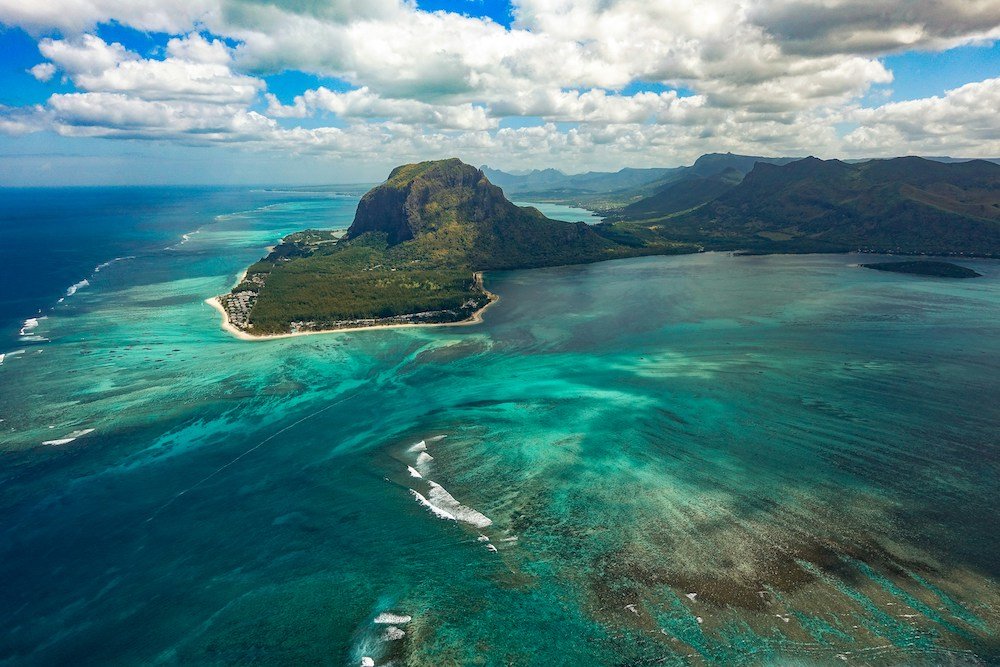
When it comes to selecting a private island for fractional ownership, careful consideration of various criteria is paramount.
From the geographical context to the size and features of the island, these factors significantly influence the ownership experience.
Geographic Considerations
1. Climate and Weather Patterns
The climate and weather patterns of a private island play a crucial role in its appeal and functionality.
Understanding the climate—whether it’s a tropical paradise with consistent sunshine or a temperate escape with distinct seasons—helps potential fractional owners align their preferences with the island’s natural environment.
Climate considerations also impact the type of vegetation, wildlife, and recreational activities available.
2. Accessibility
Accessibility is a key factor in determining the convenience of owning a private island.
Factors such as proximity to major transportation hubs, availability of private airstrips or helipads, and ease of maritime access all contribute to the overall accessibility of the island.
Fractional owners often value the ability to reach their retreat quickly and efficiently.
Size and Features of the Private Island
1. Biodiversity and Ecological Factors
The ecological diversity of a private island adds depth and richness to the ownership experience.
Islands that showcase a variety of ecosystems, from coral reefs to lush forests, not only enhance the aesthetic appeal but also contribute to environmental conservation efforts.
Fractional owners with an appreciation for biodiversity may find that the ecological factors of an island significantly enhance its overall allure.
2. Available Amenities and Infrastructure
The amenities and infrastructure on a private island are pivotal in shaping the overall lifestyle and comfort of fractional owners.
Essential amenities may include well-designed residences, recreational facilities, and sustainable infrastructure such as energy and water systems.
Islands with thoughtful development and modern amenities often provide a more enjoyable and convenient experience for fractional owners and their guests.
Risks and Considerations
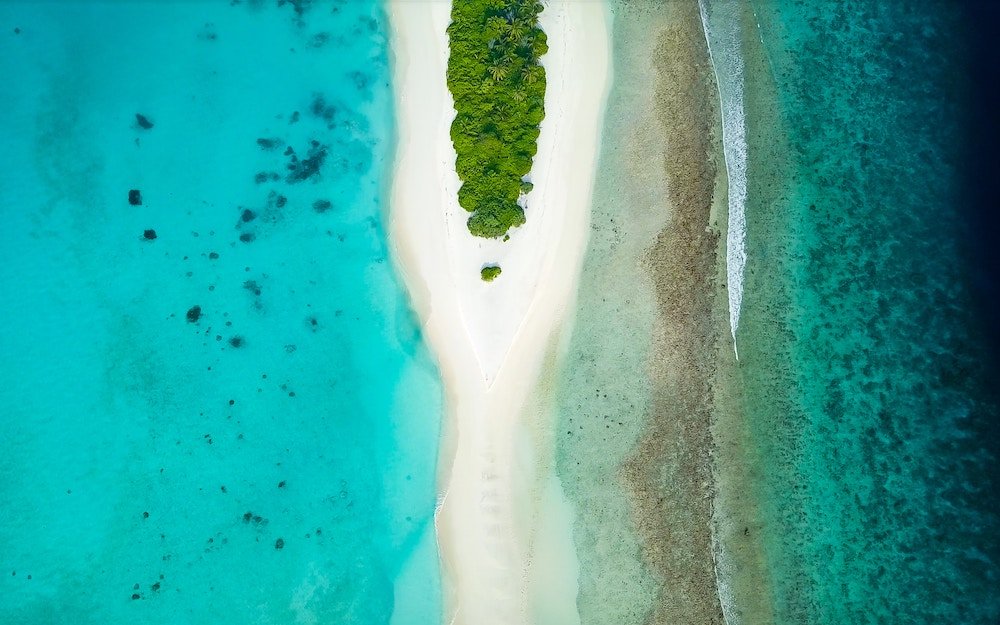
While fractional ownership offers a unique and accessible approach to private island ownership, it is crucial for potential investors to be aware of the associated risks and considerations.
Understanding these factors is key to making informed decisions and ensuring a positive ownership experience.
Potential Drawbacks of Fractional Ownership
1. Limited Usage Time
One of the potential drawbacks of fractional ownership is the limitation on usage time.
Depending on the ownership structure, individuals may have predefined periods during which they can access the private island.
While this arrangement allows for cost-sharing and ensures fair usage among co-owners, it may pose challenges for those seeking more extensive and flexible access to their retreat.
2. Decision-Making Conflicts
Fractional ownership involves shared decision-making among co-owners, which can lead to conflicts of interest.
Decisions related to property management, upgrades, or changes to the island’s infrastructure may require consensus, and differing opinions among owners can sometimes result in delays or disputes.
Establishing clear communication and decision-making protocols upfront is essential to mitigating conflicts.
3. Market Volatility and Economic Factors
The real estate market, including private islands, can be subject to volatility influenced by economic factors.
Changes in market conditions, economic downturns, or geopolitical events can impact the value of the property and the overall success of the fractional ownership venture.
Fractional owners should be aware of these external factors and consider them when evaluating the long-term viability and potential returns on their investment.
Mitigating Risks and Addressing Considerations
While these potential drawbacks exist, many can be mitigated through careful planning, effective communication, and proactive management.
Establishing clear agreements, including contingency plans for decision-making and conflict resolution, can contribute to a more harmonious fractional ownership experience.
Additionally, staying informed about market trends and seeking professional advice can help owners navigate economic uncertainties.
Legal and Regulatory Aspects

Navigating the legal landscape is a critical aspect of fractional ownership, especially when it comes to private islands.
Understanding the legal requirements and enlisting the support of legal experts are essential steps in ensuring a smooth and secure fractional ownership process.
Overview of Legal Requirements for Private Island Ownership
Private islands are subject to a myriad of legal requirements, and the specifics can vary based on the jurisdiction in which the island is located.
It is crucial for fractional owners to conduct a comprehensive overview of the legal framework governing private island ownership in their chosen destination.
This may include considerations such as property rights, land use regulations, environmental laws, and any restrictions on foreign ownership.
Understanding these legal requirements not only ensures compliance but also provides clarity on the rights and responsibilities of fractional owners.
Legal due diligence is a fundamental step in the research process and can prevent potential challenges or disputes in the future.
Role of Legal Experts in the Fractional Ownership Process
The complexities of fractional ownership, especially in the context of private islands, underscore the importance of legal expertise.
Legal professionals specializing in real estate and fractional ownership can play a crucial role in guiding prospective owners through the intricacies of the process.
These experts can assist in the review and negotiation of contracts, ensuring that the terms of the fractional ownership agreement are fair and protect the interests of all parties involved.
Legal experts can also provide insights into local regulations, zoning laws, and any specific legal considerations related to private island ownership, offering valuable advice to mitigate risks and ensure a legally sound transaction.
Navigating International Ownership Regulations
Private islands are often situated in international locations, and navigating the regulatory landscape of different countries adds an additional layer of complexity.
Understanding international ownership regulations, including restrictions on foreign ownership and tax implications, is paramount for fractional owners considering a private island in a foreign jurisdiction.
Legal experts with international real estate experience can guide fractional owners through the intricacies of cross-border transactions, helping them comply with local laws and regulations.
This proactive approach not only facilitates a smoother ownership process but also contributes to a more secure and legally sound investment.
Future Trends in Fractional Ownership and Private Islands

As the landscape of fractional ownership and private island ownership evolves, various trends are shaping the future of this unique real estate niche.
From emerging markets to advancements in property management technology and a growing emphasis on sustainability, these trends offer insights into the changing dynamics of fractional ownership.
Emerging Markets and Opportunities
The world of private islands is expanding beyond traditional destinations, with emerging markets offering new opportunities for fractional ownership.
Investors and enthusiasts are exploring lesser-known regions with untapped potential, seeking unique and diverse experiences.
Whether it’s the pristine coastlines of emerging tropical destinations or the untouched beauty of remote islands, these emerging markets present exciting prospects for fractional ownership.
Exploring these opportunities requires a forward-thinking approach and a willingness to embrace the uncharted.
As fractional ownership gains popularity globally, the expansion into emerging markets is likely to bring a fresh wave of interest and diversity to the private island ownership landscape.
Technological Advancements in Property Management
Technological advancements are revolutionizing the way fractional ownership properties, including private islands, are managed.
From smart home automation to sophisticated booking platforms, technology is enhancing the overall ownership experience.
Property management software allows fractional owners to schedule usage, track maintenance activities, and communicate seamlessly with co-owners and management teams.
Additionally, virtual reality (VR) and augmented reality (AR) technologies are transforming the way potential buyers explore private islands remotely.
Virtual tours and interactive experiences provide a more immersive understanding of the property, allowing fractional owners to make informed decisions without physically visiting the location.
As technology continues to progress, fractional owners can expect more innovative solutions that streamline communication, enhance property enjoyment, and contribute to a more efficient and transparent ownership experience.
Sustainable and Eco-Friendly Island Ownership Trends
A growing awareness of environmental issues has led to an increased focus on sustainability and eco-friendliness in private island ownership.
Fractional owners are becoming more conscious of the ecological impact of their investments and are seeking ways to minimize their carbon footprint.
This trend is reflected in the development of eco-friendly infrastructure, renewable energy solutions, and conservation efforts on private islands.
Fractional ownership projects with a strong commitment to sustainability not only align with the values of environmentally conscious investors but also contribute to the long-term preservation of the natural beauty that makes private islands so alluring.
Conclusion
In the journey through the world of fractional ownership and private islands, we’ve explored the unique appeal of these secluded retreats, delved into the intricacies of fractional ownership, and examined the factors influencing the selection of a private island.
We’ve navigated potential risks and considered legal aspects, keeping an eye on emerging trends that are shaping the future of this fascinating real estate niche.
Key points covered in this guide include:
- Understanding the allure of private islands, from their unparalleled privacy to the potential for customization and development.
- Navigating the fractional ownership process, involving research, due diligence, and a careful consideration of ownership models and associated costs.
- Exploring the risks and considerations of fractional ownership, including limited usage time, decision-making conflicts, and market volatility.
- Delving into the legal and regulatory aspects, emphasizing the importance of understanding local laws and enlisting the support of legal experts.
- Looking ahead at future trends, from emerging markets and technological advancements to the growing emphasis on sustainable and eco-friendly island ownership.
Encouraging Responsible and Informed Decision-Making
As you embark on the journey of fractional ownership and private island investment, we encourage a commitment to responsible and informed decision-making. This involves:
- Thorough Research: Conduct extensive research and due diligence to fully understand the nuances of fractional ownership and the specific considerations related to private islands.
- Legal Expertise: Seek the guidance of legal experts who specialize in real estate and fractional ownership to navigate the legal complexities and ensure a secure transaction.
- Transparent Communication: Establish clear communication channels with co-owners and management teams to address potential conflicts and facilitate smooth decision-making.
- Adaptability: Stay adaptable and open-minded, especially as the landscape of private island ownership evolves. Explore emerging markets, embrace technological advancements, and consider sustainable practices for a forward-thinking investment.
Final Thoughts on the Future of Fractional Ownership and Private Islands
As fractional ownership continues to gain popularity and private islands become more accessible through shared ownership, the future holds exciting opportunities and possibilities.
Emerging markets, technological advancements, and a growing emphasis on sustainability are reshaping the landscape, offering a diverse range of options for fractional owners.
In the coming years, we anticipate a continued expansion into new destinations, increased integration of cutting-edge technologies for property management, and a heightened commitment to sustainable practices.
As fractional ownership becomes more mainstream, the dream of private island ownership will unfold for a broader audience, creating a dynamic and inclusive community of island enthusiasts.
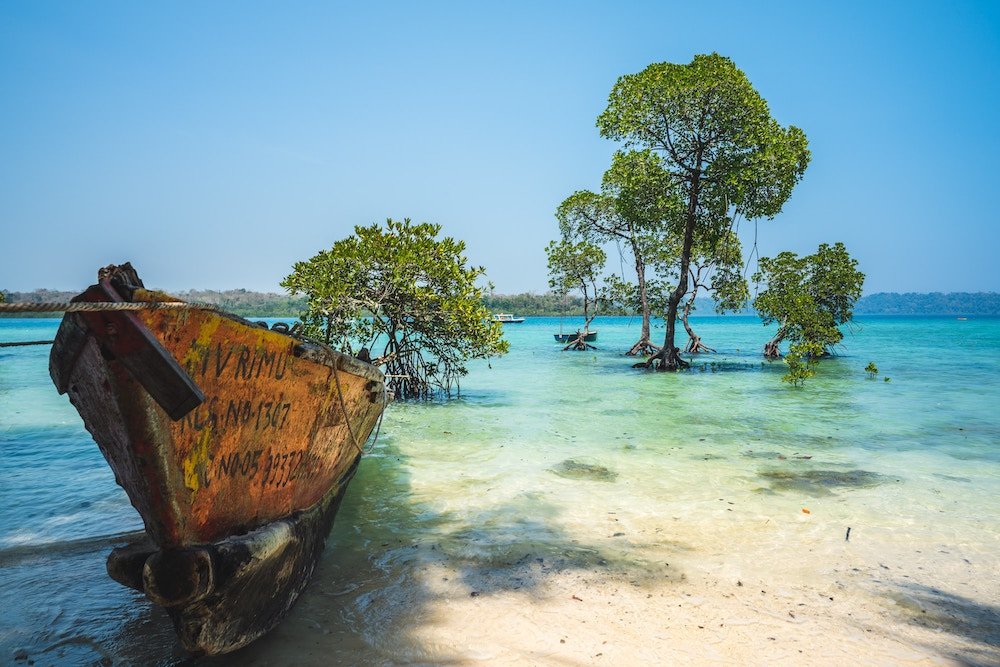
FAQ’s About Fractional Ownership
What are the downsides of fractional ownership?
Fractional ownership comes with certain downsides, including:
- Limited Usage Time: Depending on the ownership structure, individuals may have restricted access to the property, limiting the time they can spend there.
- Decision-Making Conflicts: Shared ownership may lead to conflicts among co-owners, especially when it comes to decisions about property management, upgrades, or changes to the property.
- Market Volatility: The real estate market’s fluctuations can affect the value of the property, impacting the potential return on investment for fractional owners.
What is an example of a fractional ownership?
An example of fractional ownership is a vacation property owned by multiple individuals. Instead of one person owning the entire property, several investors purchase shares in the property.
This could involve a specific time allocation, such as each owner having the right to use the property for a certain period annually.





